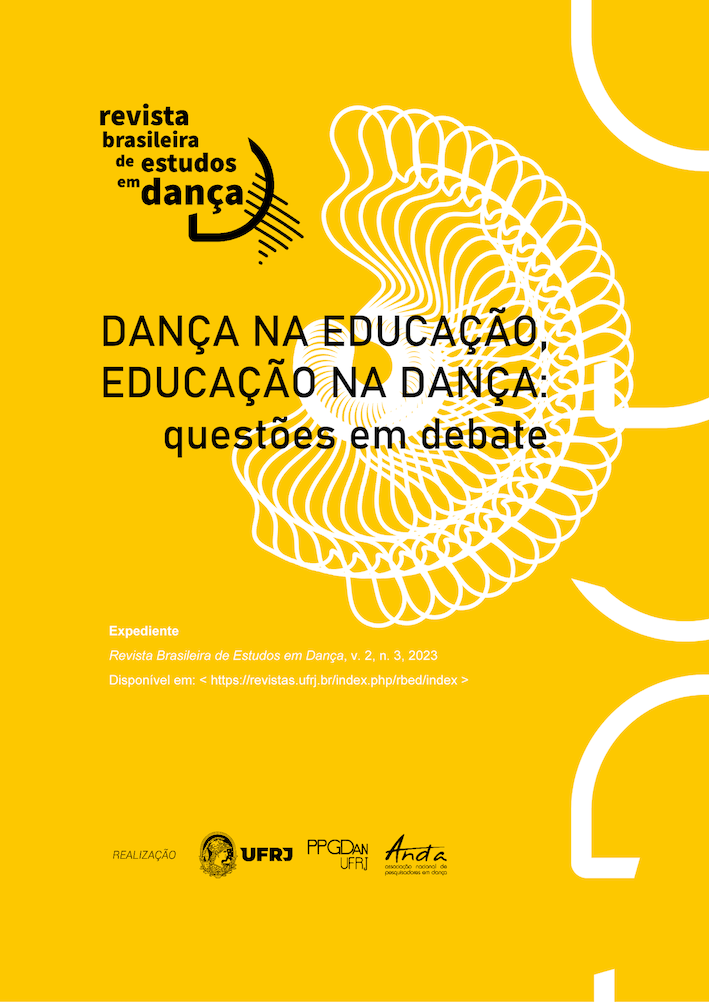Challenges of dance in schools after the pandemic:
supervised internship experiences
DOI:
https://doi.org/10.58786/rbed.2023.v1.n3.55886Keywords:
dança, escola, pandemiaAbstract
The article discusses the challenges of dance in school, pointing out those focused on the return to presentiality in the post-pandemic. The text brings reflections of 11 supervised stages in Dance in early childhood education and fundamental education 1 in 2022. For the analysis we used reports constructed from the Teaching and Learning Project (VASCONCELLOS, 2002), with the observations of the teachers noted down in their classroom plans, in a movement of reflection on action (SCHÖN, 2000). Among the challenges facing dance in schools are the selection of content and lack of curriculum, the concepts and preconceptions about dance, the lack of physical space and the discontinuity of learning. The pandemic has brought others: TikTok, the learning gap. The reports indicate that part of the challenges have been common for years and that the stage was an opportunity to get to know the profession, and to be enchanted and enchanted by their teaching.
Published
Versions
- 2024-05-09 (3)
- 2023-12-01 (2)
- 2023-09-02 (1)
How to Cite
Issue
Section
License
Authors who publish in the Revista Brasileira de Estudos em Dança are
responsible for the content of signed articles and retain copyright.
They grant the journal the right of first publication with the work simultaneously
licensed under the Creative Commons Attribution-NonCommercial 4.0 License
(Open Archives Initiative - OAI). This feature, used for open-access journals,
allows sharing work for non-commercial purposes and acknowledges
authorship. If the text is later published in another vehicle, the author
must inform that it was initially published as an article in the Revista Brasileira
de Estudos em Dança. Therefore, even if the journal owns the first publication,
authors are entitled to publish their work in institutional repositories or on
their personal pages, even if the editorial process has not been completed.
The journal reserves the right to make normative, orthographic, and grammatical changes to maintain the language standard, respecting the authorial style.

